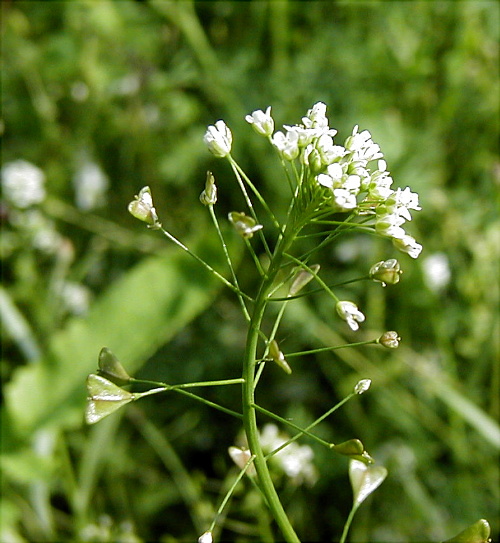In Scots, “to flit” means to move house. Scots is full of great words that were once common in many English dialects, and thinking about flitting – the process and the word – brought to mind John Clare’s great poem of the same name today. This is a poem that perfectly captures the strangeness of relocation (I sit me in my corner chair / That seems to feel itself from home) but it is the lines about weeds and wildflowers that are most often in my head as I potter about my familiar paths with Bruce. Today, the final stanzas particularly struck home.
I love the verse that mild and bland
Breathes of green fields and open sky,
I love the muse that in her hand
Bears flowers of native poesy;
Who walks nor skips the pasture brook
In scorn, but by the drinking horse
Leans ‘oer its little brig to look
How far the sallows lean across,
And feels a rapture in her breast
Upon their root-fringed grains to mark
A hermit morehen’s sedgy nest
Just like a naiad’s summer bark.
She counts the eggs she cannot reach
Admires the spot and loves it well,
And yearns, so nature’s lessons teach,
Amid such neighbourhoods to dwell.
I love the muse who sits her down
Upon the molehill’s little lap,
Who feels no fear to stain her gown
And pauses by the hedgerow gap;
Not with that affectation, praise
Of song, to sing and never see
A field flower grown in all her days
Or een a forest’s aged tree.
Een here my simple feelings nurse
A love for every simple weed,
And een this little shepherd’s purse
Grieves me to cut it up; indeed
I feel at times a love and joy
For every weed and every thing,
A feeling kindred from a boy,
A feeling brought with every Spring.
And why? this shepherd’s purse that grows
In this strange spot, in days gone bye
Grew in the little garden rows
Of my old home now left; and I
Feel what I never felt before,
This weed an ancient neighbour here,
And though I own the spot no more
Its every trifle makes it dear.
John Clare, The Flitting, 1833
To get to grips with this wonderful poem, you need to think about it in terms of Clare’s own “flit” between the villages of Helpston and Northborough, as well as the political context of the land enclosures that redefined the face of England in the eighteenth and nineteenth centuries. For this I recommend my good friend John Barrell’s book, The Idea of Landscape and the Sense of Place (1972)


I was reading about the history of Yorkshire yesterday, and it was settled by the Danes (Vikings). So no surprise there are Danish words still hanging on. Also it is not far from the English “flight”…
LikeLike
My nan was a scouser from Liverpool and she use to say “they’ve done a moonlight flit” meaning someone has moved house in the middle of the night to avoid paying unpaid rent to a landlord! X
LikeLike
I take some of my Scots vocab for granted, it didn’t even occur to me that someone may not know what ‘flitting’ was. Lovely post. Good luck in your new home. Lang may yer lum reek.
LikeLike
I don’t have a copy of Mary Norton’s ‘The Borrowers’ to hand, but I seem to remember the Borrowers talking about ‘flitting’ when they had to find a new place to live. My mum read these books to my sister and me when we were little, and I remember that her version of Pod Clock always spoke of ‘flitting’ in ominous tones…
LikeLike
Lovely with the long “o” LOvely for those of us across the pond. I truly appreciate good prose and verse. Steve. Seattle, WA/USA
LikeLike
My mother was an English major and it was not until my adulthood that I realized how very rich and varied my siblings and my vocabulary are as a result. That said, our use of the verb “to flit” always meant to move between different tasks or places apparently without thought or randomly. As in, you’re just flitting around the room but not cleaning anything! I wonder how a verb morphed from meaning “to move house” to “to move without purpose.”
LikeLike
I love poetry. Thank you for quoting that poem. We have shepherd’s purse that looks like yours in New England (where I grew up) and out here in Seattle, which has been home for 46 years.
Even though we were only thinking of a short post-doctoral stay, as soon as we crossed the high pass which crosses the Caacades into western Washington (state), we knew we were home. We have never been tempted to love anywhere else. It seems as though you have found your home as well.
I also like your designs very much, though your closely fitted ones don’t suit me, I like to look at them.
LikeLike
Hope everything goes smoothly for your wee flit and you will soon be all settled in and cosy. I do enjoy your posts but they are making me intensely homesick ;-)
LikeLike
And in Swedish too – flytta, I believe! I hadn’t heard the word since childhood days in the East Midlands – it seemed to die out with my grandparents’ generation – and then was happily reacquainted when I learned some Swedish a few years’ ago. All good wishes for your flit.
LikeLike
aye, to flit,…………28 times at last count, 4 countries, 2 continents…………never sure if it is/was a blessing or a curse. but, sooooooo many friends!!! and maggie, we never do leave ‘it’ all behind…
great post, thank you.
LikeLike
…And in Swedish “flytta”.
LikeLike
Well that struck a cord, of sorts. I think in the interior and especially the exterior of my home I keep recreating what I have left behind in Scotland over 45 plus years ago. The chiming clock ( my uncles had one that I loved, mahogany furniture – though not my style- still catches my eye,overstuffed sofa etc.,). I just saw some “broom” at the nursery here (Canada) which I am trying to fit into a space in the garden it will like and thrive in. Do we ever really leave it all behind? Good luck with the move…I must say I am envious.
LikeLike
Maggie – please look into broom and its invasive qualities before you plant it. In many places in Canada it is terrible weed.
LikeLike
I love this poem. Thank you for sharing. I have “flitted” into my 14th house, if you count my childhood and adulthood. Have lived in Edinburgh for a wee while, which is where my mum is from.
Best,
Sheila
https://www.etsy.com/shop/sheilalikestoknit
LikeLike
Good luck with your flit.
LikeLike
I had forgotten this word from my childhood in Northern Ireland (Ulster Scots). Given that this year I have moved back north from Glos to Argyll, this was an interesting post. My husband was surprised at how easily I moved, but the landscape here is right, for me it speaks of home and a familiar sense of place. The colours and textures are right.
LikeLike
Poetry, like music, so evocative…always touching so many senses. Thank you for sharing the poem and for tying it to the history of when it was written.
LikeLike
“The summer like a stranger comes,
I pause and hardly know her face.”
This couplet rings very true to me, having lived in very different environments, where the seasons can be unrecognizable to me without a calendar.
LikeLike
beautiful
LikeLike
In Danish the verb ‘flytte’ means move. Perhaps a remnant of a viking visit…?
LikeLike
clearly! That’s fascinating – thankyou
LikeLike
And “flytta” in Swedish.
LikeLike
Same meaning in Norwegian too :-)
LikeLike
We use the term flitting here in Yorkshire too. To do a “moonlit flit” is to disappear overnight to evade the Baliffs, usually.
LikeLike
We flit in Pennsylvania too and make a noun: Oh, it’s a flittin’!
LikeLike
your last paragraph reminds me of when i first read about the land enclosures in Michael Wood’s The Story of England. I will have to read about John Clare, whose work is not familiar to me as I’m not British. Thanks for posting it and all the best with the relocation
LikeLike
Your postings always impart such thoughtful feelings. Thank you for sharing yours.
LikeLike